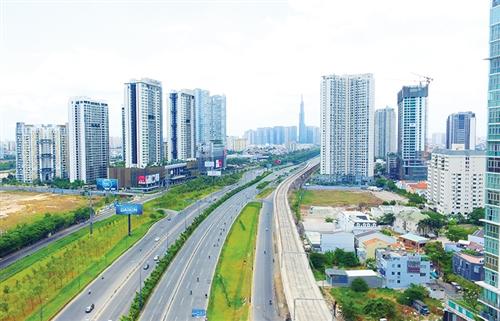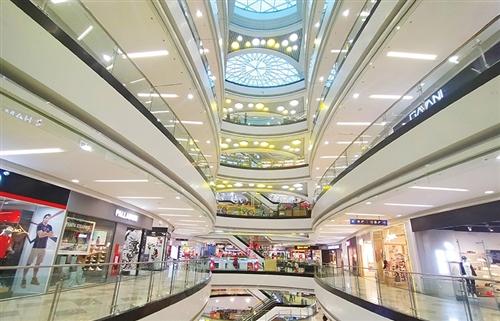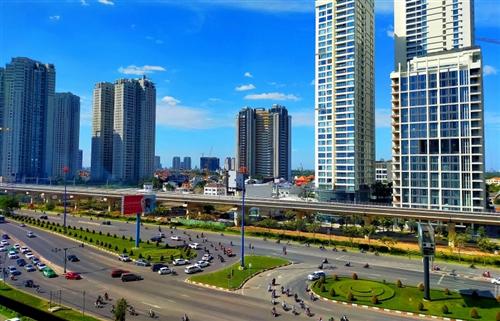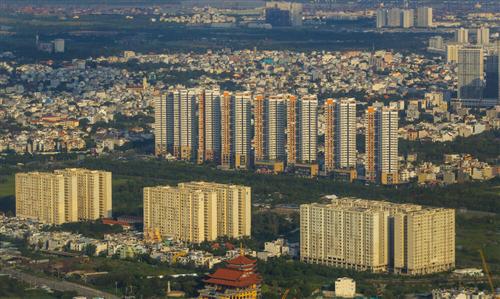Landlords should switch to revenue sharing, market researcher suggest
Landlords should switch to revenue sharing, market researcher suggest
Vietnamese landlords should consider shifting from their traditional fixed-rent model to base rents and revenue sharing like in many other countries to spread the risk, experts have suggested. 
“Retailers with the infrastructure to fulfil online orders through home delivery are currently being perceived as beneficiaries of consumers’ reluctance to visit stores, and we are seeing an increased conversion of people to online,” real-estate services firm, Jones Lang LaSalle (JLL), said in a recent report on the retail market.
“Greater emphasis will be placed on the shift towards a flexible omni-channel retail model and sustainable fulfilment; strengthened partnerships between landlords and retailers will need to emerge to achieve this.
“No matter how adversarial the relationship can be between landlords and tenants at times, the bottom line is that we are all in this together and the need to find common ground is more important than ever.”
Duong Thuy Dung, senior director at CBRE, said: “From the effects of COVID-19 that we have seen, the local market will require more presence of online platforms and development of omnichannel strategies which can serve a wider range of consumers and categories and help push marketing.”
Retail is the segment most affected by COVID-19 in the HCM City real estate market.
JLL said footfall at many malls and retail centres in the city declined by 80 per cent year-on-year in February and March.
Many malls closed due to Covid-19 fears.
Some international brands postponed plans to launch in Viet Nam this year, particularly HCM City, the company said.
The pandemic would affect plans to open nearly 280,000sq.m of gross floor area (GFA) of retail space in HCM City this year and 180,000sq.m of GFA in Ha Noi, it said.
Challenges could persist in the sector in the second quarter due to the nation-wide social-distancing campaign from April 1, it warned.
The retail landscape had been fairly robust for 18-24 months before the outbreak, it said.
“E-commerce’s growth continued,” Trang Bui, head of markets at JLL Vietnam, said.
“I don’t think it deeply affected bricks and mortar retail; it was more of a complementary option.
“The challenge we are seeing in the market currently is the overdue rent payment from retailers and tenants who have closed down. Since this is an unprecedented event – nobody saw anything like this coming – the language used in most leases about business interruption and force majeure is a section that people never thought that they would have to look at. Yet, over the last two weeks, those are the clauses that are being read, re-read, and turned upside down and inside out.”
CBRE made a similar assessment, saying, “Retail is one of the sectors most affected by COVID-19.”
In a report, it said in the first quarter total revenues from food and beverages and accommodation and tourism services decreased by 9.6 per cent and 27.8 per cent year-on-year.
A major reason for the difficulties faced by the retail segment was the drop in the number of international visitors.
JLL said this most acutely impacted luxury segments and super prime retail destinations.
Domestic retail spending could suffer a temporary decline from consumer reluctance or inability to visit destinations where infection risks are elevated.
Non-essential goods items and leisure services will be hit harder than perishables and essential dry goods, which have seen elevated demand as consumers stockpile to avoid personal shortages.
To support retailers, some landlords have offered rent discounts in February and March of 10-30 per cent, especially for general retail segments like food and beverages and entertainment.
Others have considered reducing rents by up to 50 per cent depending on the performance of their tenants.
Some have also agreed to defer a portion of the rent until the situation improves.




























